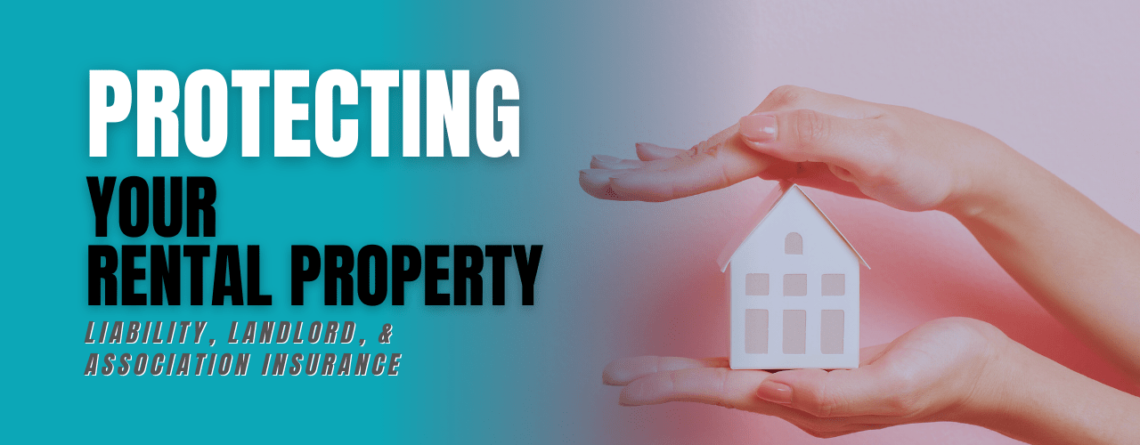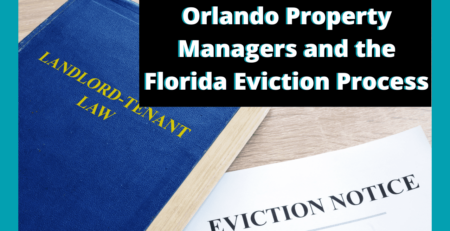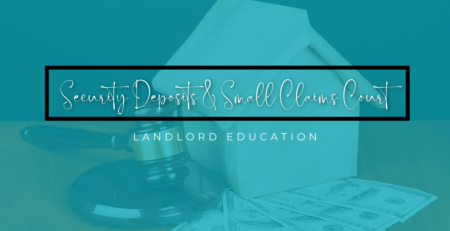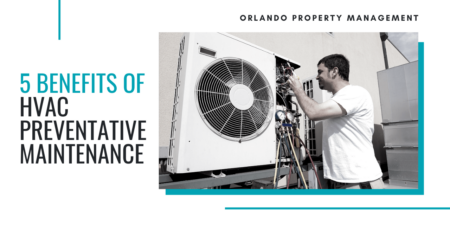Protecting Your Rental Property: Liability, Landlord, and Association Insurance in Orlando, Florida
Securing the right insurance coverage for your Orlando rental property is paramount to safeguarding your investment and protecting your tenants. Having the right insurance can help landlords and property owners in Florida mitigate risks, protect their assets, and maintain a secure environment for their tenants.
However, knowing the different types of insurance available, including renters, landlord, and liability insurance, is vital to ensure bulletproof protection for your rental property and foster a mutually beneficial relationship with your tenants. Since all these insurance policies offer comprehensive coverage beyond standard homeowners insurance, you should explore their importance and the benefits they provide to landlords and renters.
As experienced investment property owners at Homevest Management, we present a comprehensive guide on protecting your Orlando rental property with liability, landlord and association insurance.
Landlord Liability and Insurance
A homeowner’s insurance policy won’t cover a rental property. Therefore, it is required to go for landlord insurance, which typically provides coverage for the home’s structure and offers liability coverage. Transitioning from a homeowner’s to a landlord policy goes beyond safeguarding your finances. A mortgage on the unit you intend to rent out to tenants is also mandatory.
Landlord’s insurance provides financial protection to landlords in the event of tenant or guest injuries on the property. Let’s explore the importance of landlord liability insurance and how it covers repairs and replacements in case of a catastrophe.
Importance of Landlord Insurance
Landlords have to provide a safe living environment for their tenants. However, accidents can happen, and if a tenant or their guest gets injured in the unit, the landlord may be held legally and financially responsible. That’s where landlord liability insurance comes into play.
What It Covers
Landlord liability insurance offers financial protection by covering the costs associated with potential lawsuits, medical expenses, and legal fees. Here is what the insurance coverage may include.
- Tenant Injuries
Landlord liability insurance covers legal expenses, medical bills, and settlements if a tenant is injured due to property negligence or lack of warning about safety risks.
- Tenant Security
Landlord liability insurance covers costs from claims related to inadequate security measures, protecting landlords from potential legal repercussions.
- Unlawful Tenant Behavior
Landlord liability insurance can protect landlords from claims and lawsuits arising from the actions of their tenants.
- Accidental Damage
Landlord liability insurance can also cover claims of accidental damage to the rental property caused by the landlord or their employees. This coverage helps protect the landlord’s investment by covering the costs of repairs or replacements.
- Fair Rental Value Coverage
If a covered loss renders the rental property uninhabitable, fair rental value coverage ensures that landlords continue to receive income by covering the lost rental income during the repair or rebuilding process.
- Inflation Protection
Landlord insurance policies often include inflation protection, automatically adjusting the policy limits to account for inflation. It ensures that the coverage remains adequate over time, and some insurers may even offer premium discounts for maintaining this protection.
- Personal Injury Protection
Landlord liability insurance can include personal injury protection, which covers landlords against claims of invasion of privacy, libel, slander, wrongful eviction, or wrongful entry made by tenants.
Additionally, in many states, having liability insurance is a legal requirement for landlords. Landlords can ensure compliance with legal obligations by obtaining the recommended minimum of $1 million in liability coverage.
Tenants’ Liability Insurance
Tenant liability insurance, or renter’s insurance, is equally crucial for tenants and landlords. It ensures financial security and peace of mind for all parties involved. Requiring tenants to have liability insurance provides additional protection for landlords and property managers.
If a tenant accidentally damages the property, the landlord can file a claim against the tenant’s insurance policy to cover the repair costs. This reduces the financial risk for landlords and ensures that the responsible party has the means to cover the damages.
Additionally, renter’s insurance covers the tenant’s personal property against loss or damage caused by covered perils such as fire, theft, vandalism, or certain natural disasters. If unfortunate events occur, like a fire destroying the rental unit, the tenant’s insurance policy will help replace their belongings, including furniture, electronics, clothing, and other personal items.
Tenant liability insurance protects tenants’ personal belongings, offers liability coverage in case of injuries or property damage, and provides landlords with added security and financial protection. Requiring tenants to have renter’s insurance helps ensure a safer and more secure rental environment for everyone involved.
Coverage for Natural Calamities
As a responsible landlord, you should often seek comprehensive insurance coverage for your rental properties beyond just the physical structure and liability. In addition to these standard protections, it is crucial to consider coverage for potential natural calamities. Two significant risks to address are flood and hurricane damage, mainly if the property is in a flood-prone zone or an area susceptible to tropical storms.
Here in Orlando, insurance coverage tailored to address flood and hurricane risks is advisable to ensure you can rebuild and recover from water, wind, and debris-related damages. These policies typically provide financial support to rebuild or repair the property after such events, enabling you to restore your rental unit and resume generating income.
In addition to flood and hurricane coverage, another vital consideration for landlords is loss of rent coverage. When a covered loss occurs, such as damage from a natural disaster, tenants may need to vacate the unit temporarily while repairs are being made.
During this period, you may experience a loss of rental income. Loss of rent coverage helps mitigate this financial setback by compensating you for the income lost while the property is unoccupied and undergoing repairs. This coverage ensures a consistent cash flow, even in unexpected property damage.
For landlords who own older homes or buildings, it is essential to make improvements to bring the property up to current safety codes. You can also add insurance riders or endorsements to your insurance policy to cover the expenses associated with upgrading and renovating the property for compliance with building codes. These endorsements provide an additional layer of protection, enabling you to make the necessary improvements without incurring excessive financial burdens.
As property values increase over time, regularly reviewing and assessing your insurance policy is essential to ensure it offers adequate coverage. Considering the expenses required to replace the rental unit in case of a significant loss is crucial. You can ensure your insurance policy aligns with the current value of your rental property with periodic reassessment of coverage limits.
Landlords can protect their rental properties from natural calamities by obtaining specialized insurance coverage for flood and hurricane damage. Loss of rent coverage helps maintain a consistent income stream during property repairs, and insurance riders can be added to cover the costs of bringing older properties up to code.
Regularly reviewing and updating your insurance policy ensures that it adequately covers the property’s value and provides the necessary protection in the face of unexpected events.
Understanding HOA Insurance
HOA insurance, or an HOA master insurance policy, is a type of insurance coverage that homeowners associations purchase to protect against liability expenses and repairs related to common areas within a residential community.
It is called a “master policy” because it covers the entire community or association rather than individual homeowners. HOA insurance aims to safeguard the association’s assets and provide financial protection for property damage, lawsuits, or other liabilities from shared areas and responsibilities.
The Need for Buying Association Insurance
One of the primary functions of HOAs and condo associations is to maintain and safeguard public spaces and common areas within the community. These areas may include amenities such as
- Swimming pools
- Gyms
- Elevators
- Parking lots
- Shared walkways
Association insurance becomes indispensable in this context, as it covers potential liability issues within these communal spaces. The association insurance policy protects against associated costs and liabilities if an accident occurs or property damage transpires.
Is association insurance even necessary?
Yes, association insurance is necessary for several reasons. When you purchase a condo or a home in an HOA to rent out, you are typically required to buy insurance for your individual property. However, association insurance is still necessary because it works with your personal homeowners or condo insurance to provide comprehensive coverage.
Association insurance helps protect homeowners in the association against the costs and liabilities associated with common areas. The association’s insurance can cover liability expenses if someone gets injured in a common area. Additionally, if there is damage to a shared facility, the insurance can help cover the repair or replacement costs.
Factors That Are Covered and Not Covered in the HOA Insurance
It’s crucial to note that only some things are covered in a master insurance policy for HOAs.
The association insurance typically does not cover expenses related to incidents on or in your personal property. Additionally, coverage may be limited if personal property is lost or stolen in the association’s common areas.
To ensure you have appropriate coverage, you should review your personal insurance policy for any necessary updates and familiarize yourself with the master policy provided by your association. It helps to identify potential conflicts or discrepancies between the two policies, ensuring comprehensive coverage for your individual property and the shared common areas.
Protect Your Rental Property With Homevest Management
In Orlando, protecting your rental property goes beyond just landlord insurance. It involves understanding liability, landlord insurance, the role of association insurance and much more.

To make sure you get the right insurance coverage for your rental property, you should consult experts in Orlando property management, real estate, and HOA management.
To learn more about rental property insurance, contact us at Homevest Management. We are a trusted and experienced company serving Central Florida, including Winter Garden, Doctor Phillips, Baldwin Park, Winter Springs, and Windermere.











